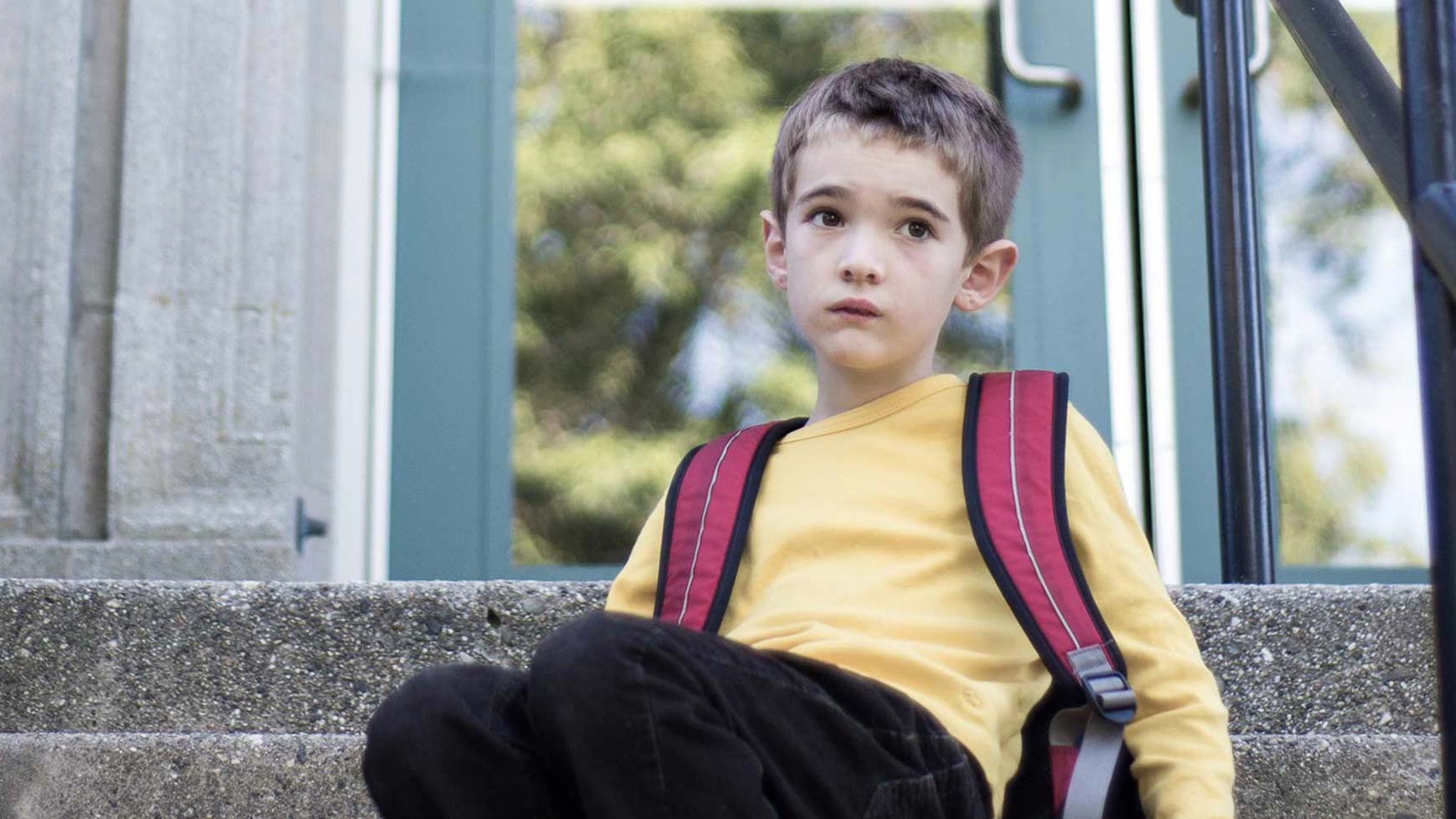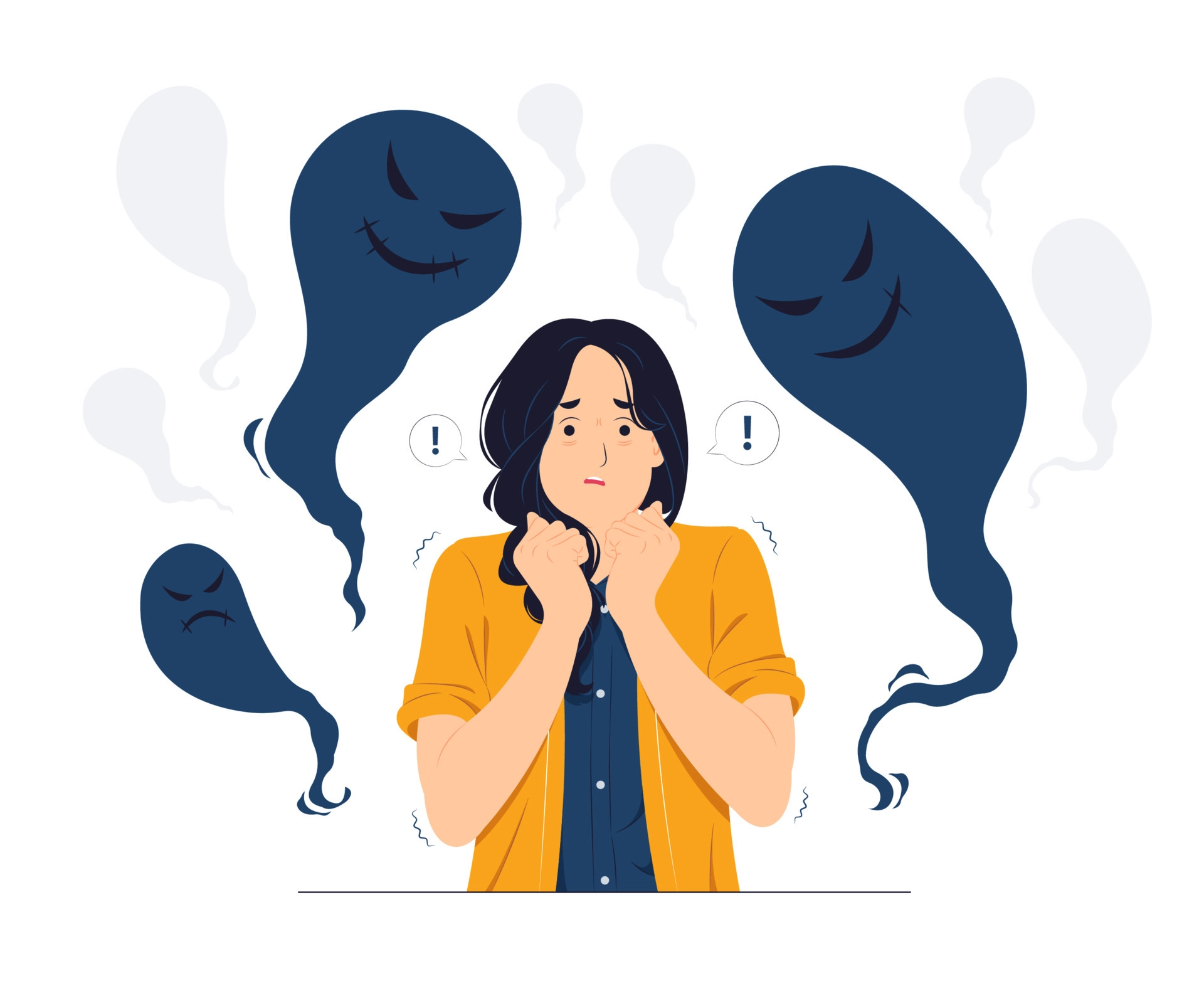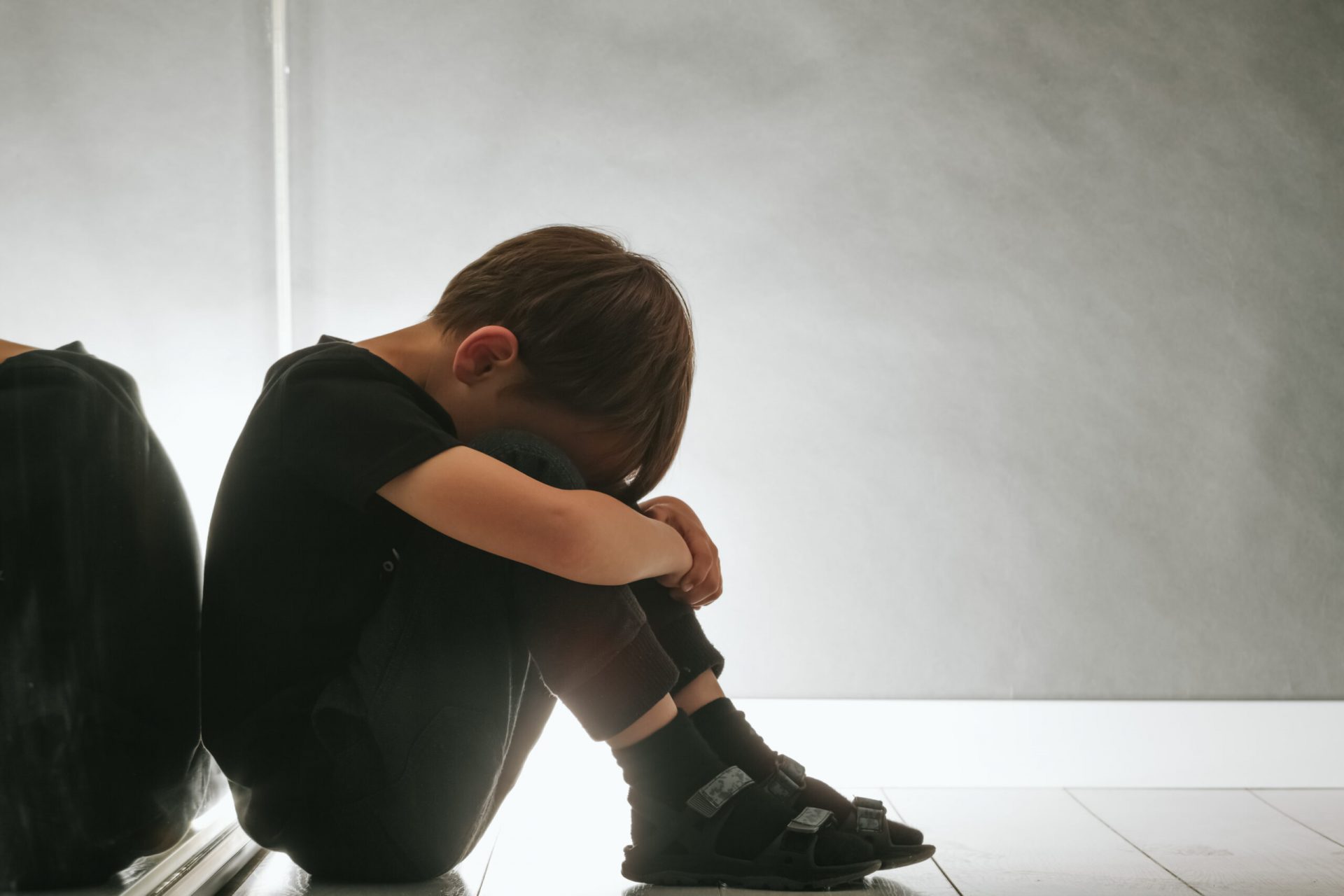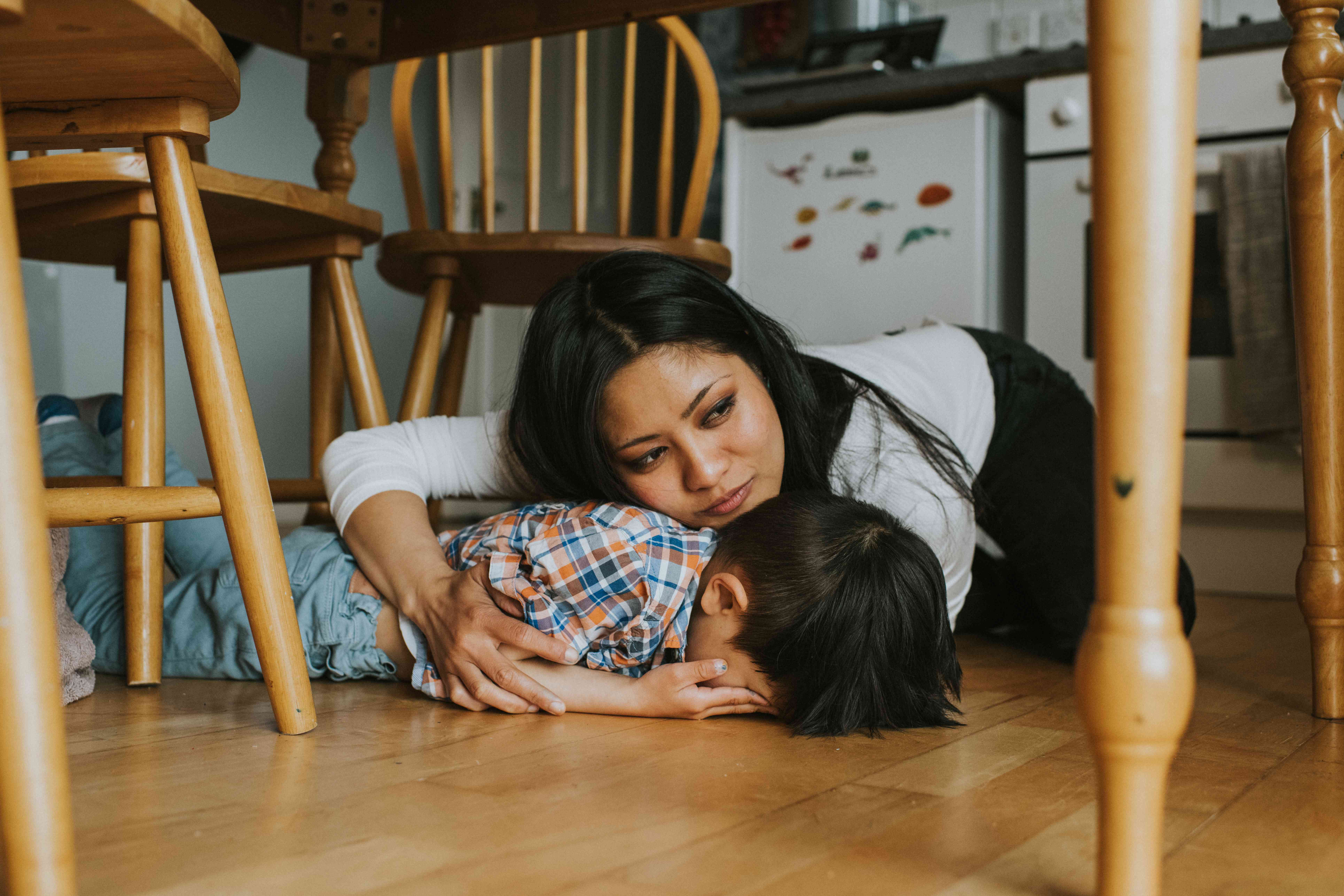
As parents, we all know how precious and vulnerable our little ones are. From the moment they are born, we become acutely aware of their every expression and emotion. It’s only natural to want to protect them from anything that could cause them harm or distress. But what do we do when our baby exhibits signs of fear or anxiety?
It’s important to understand that fear is a natural and instinctive response in humans. Even babies can feel scared or anxious about certain things or situations. While some fears may seem irrational to us as adults, they are very real for our children. As parents, it is our job to help them navigate through these fears and find a sense of balance and understanding.
So how do we begin to help our little ones overcome their fears? First and foremost, we must seek to understand what it is that they are afraid of. Is it the dark, strangers, or loud noises? Once we identify the fear, we can then work towards helping them feel safe and secure. Often, simply acknowledging and empathizing with their feelings can go a long way in helping them cope with their fears. As the saying goes, “You can’t stop the waves, but you can learn to surf.”
In this article, we will explore some tips and strategies for helping your baby overcome their fears. We will also discuss when it might be helpful to seek the assistance of a mental health professional, such as a therapist who specializes in working with children. Remember, we are not alone in this journey. There are resources and support available to help us navigate the challenges of parenting.
As we dive into this topic, let’s keep in mind that fear and anxiety are not limited to babyhood. They are emotions that we all experience throughout our lives. So, whatever fears your little one may face, know that you are not alone. Together, we can create a safe and nurturing environment where they can thrive and grow.
Contents
Baby fears and phobias
Fears and phobias are a natural part of a baby’s development. From the early months after birth, babies can start to show signs of fear or discomfort in certain situations. While some fears are instinctive, others can be learned or influenced by their environment.
One of the most common fears in babies is the fear of heights. As they start to explore their surroundings and become more mobile, they may feel anxious or scared when they are off the ground. It’s important for parents to understand and empathize with their baby’s fear, while also ensuring their safety and comfort.
Another common fear in babies is the fear of strangers. As they grow older and become more aware of their surroundings, they may become wary of unfamiliar faces. This is a natural response to protect themselves from potential dangers, as babies are highly dependent on their parents or caregivers for comfort and security.
Some babies may develop specific phobias, such as the fear of fire or loud noises. These fears can be triggered by a traumatic event or a negative experience. It’s important to address these fears early on and provide reassurance and support to help them overcome their anxieties.
As parents, there are several strategies you can use to help your baby deal with their fears and phobias. Firstly, it’s important to stay calm and reassuring when your baby is scared. Your facial expressions and tone of voice can greatly influence their emotional state and help them feel safe.
Listening and validating their feelings is also important. Acknowledge their fears and let them know that it’s okay to feel scared. This will help them feel understood and supported.
Creating a safe and loving environment is key. Providing comfort and a sense of security can help your baby feel more at ease and less fearful. Offering physical touch, such as cuddling or holding them, can have a calming effect and help them relax.
Gradually exposing your baby to their fears in a controlled and supportive manner can also be helpful. For example, if your baby is scared of heights, you can start by putting them on a low surface and gradually increase the height over time. This approach, known as systematic desensitization, can help your baby gradually overcome their fears.
If your baby’s fear becomes more severe or is interfering with their daily life, it may be useful to seek professional help. Child therapists or mental health professionals who specialize in working with children can provide guidance and support to help your baby overcome their fears.
Remember, every baby is different and may have their own unique fears and phobias. It’s important to be patient and understanding while helping your baby navigate through their fears. By providing love, support, and opportunities for growth, you can help your baby build resilience and develop a strong sense of emotional and social wellness.
References:
- Kimberly-Clark Healthline: https://www.healthline.com/health/parenting/baby-fears-and-phobias#references
- Child Mind Institute: https://childmind.org/topics/concerns/fears-and-phobias/
Understanding and helping your child overcome them
Many babies have common fears or phobias, which can begin as early as a few months old. These fears can include fear of strangers, loud noises, or even certain events or experiences. While it’s normal for babies to feel fearful or anxious at times, it’s important to understand their fears and help them overcome them.
One of the most common fears that babies experience is the fear of strangers. This fear usually begins around 6 to 8 months old and can last for several years. Babies may become fearful or anxious when they see unfamiliar faces, and this is a normal part of their emotional-social development. They may cry or show signs of wariness when someone they don’t know tries to interact with them. As parents, it’s important to be understanding of their fear and provide comfort and support.
Another common fear is the fear of loud noises. Babies have sensitive hearing, and sudden loud noises can startle them. This is known as the Moro reflex, or the startle reflex, and it’s a normal response to a sudden loud noise. Babies may flinch or startle when they hear a loud noise, and they may cry or become upset. As parents, it’s important to provide a safe and quiet environment for your baby whenever possible.
Some babies may also have specific fears, such as fear of certain animals, objects, or events. For example, some babies may be afraid of dogs or fearful of Halloween costumes. These fears can vary from baby to baby and are usually learned through experiences or observations. As parents, it’s important to be understanding and patient with your baby’s fears, and to provide reassurance and support to help them overcome these fears.
It’s also important to remember that not all babies will have the same fears. Some babies may be more fearful or anxious than others, and this is normal. Every baby is unique and will have their own individual fears and anxieties. As parents, it’s important to be sensitive to your baby’s needs and provide a supportive and loving environment.
Understanding your baby’s fears is the first step in helping them overcome them. By recognizing their fears and providing comfort and support, you can help your baby feel safe and secure. It’s also important to provide opportunities for your baby to explore and learn about the world around them. This can help build their confidence and develop their skills in dealing with new and potentially fearful situations.
When it comes to helping your baby overcome their fears, it’s important to take it slow and be patient. Encourage your baby to face their fears gradually, and provide reassurance and support along the way. Remember that every baby is different, and what works for one may not work for another. Trust your instincts as a parent and do what feels right for your baby.
While it’s natural to want to protect your baby from every possible danger, it’s also important to give them the opportunity to learn and grow. By allowing your baby to experience what they fear in a safe and controlled environment, you can help them understand that not everything they’re afraid of is a real or immediate risk. This can help them gain confidence and develop the skills they need to navigate the world around them.
In conclusion, understanding and helping your child overcome their fears is an important part of their emotional and social development. By being understanding and supportive, you can help your baby feel safe and secure while also encouraging their growth and development. Remember, every baby is unique, so what works for one may not work for another. Trust your instincts as a parent and do what feels right for your baby.
Identifying some threats is instinctive

From the moment of birth, babies are highly attuned to detect potential dangers and threats in their environment. This instinctive ability is crucial for their survival and development.
For instance, a baby’s fear of loud noises, known as the “Moro reflex,” is a natural response to sudden and unexpected sounds. It is an automatic way for the baby’s brain and body to prepare for danger or threat. Similarly, a baby’s wariness and fear of strangers is also an instinctive response to protect themselves from potential harm.
As babies grow and develop, they learn to evaluate and balance their fears. They start to understand that not all situations or people are dangerous and that they can seek help and support from their caregivers when needed.
However, it is essential to remember that what may seem irrational or funny to us as adults can be very real and overwhelming for a baby. Their fears may stem from experiences, observations, or even imagined scenarios. These fears should be acknowledged and respected, even if they may seem insignificant to us.
As parents and caregivers, we can help our babies overcome their fears by providing a safe and nurturing environment where they feel supported and understood. We can engage in activities that expose them gradually to those fears, allowing them to learn and adapt at their own pace.
It is crucial to create opportunities for them to express their fears and emotions, even if they may not yet have the language skills to articulate them fully. Through their behavior and nonverbal cues, babies communicate their feelings and seek reassurance and comfort from their caregivers.
It’s important to note that some fears and anxieties may persist into childhood and beyond. If a baby’s fears are excessive or significantly impact their daily life, it may be necessary to seek professional help, such as consulting a pediatrician or a mental health specialist.
In conclusion, understanding and acknowledging a baby’s fears is an integral part of their emotional and social development. By addressing these fears with compassion, patience, and support, we can help our babies navigate their early years and build a healthy foundation for their overall well-being.
References:
Kanaley, S. (2019). Baby fears and phobias: Understanding and helping your child overcome them. ABC Publishing.
Common fears and phobias in babies

It is actually quite common for babies to show fears and phobias as part of their emotional development. As they begin to understand the world around them, they may exhibit signs of fear and anxiety towards certain things or situations. However, it is important to note that these fears are often irrational and may not always be based on actual dangers. It is the absence of their caregiver’s presence or the comfort of a familiar human face that can make them feel scared.
Some of the most common fears in babies include loud noises, strangers, separation from their mother, and fear of the dark. For instance, many babies become scared or anxious during the Halloween season due to the use of scary masks and decorations. While some babies may express their fear through crying or facial expressions, others may become very quiet and still.
Identifying and understanding a baby’s fears can be challenging, especially since they are not yet able to communicate verbally. However, there are certain signs and behaviors that can help you determine when your baby is feeling scared or anxious. For example, they may cling to their caregiver, cry excessively, or exhibit signs of distress. It is important to pay attention to these cues and offer comfort and reassurance to help them feel safe.
As a parent, your instinctive response to your baby’s fears is to protect and comfort them. However, it is also important to help them overcome their fears in a healthy way. One way to do this is to gradually expose them to the things that scare them in a controlled and supportive environment. For example, if your baby is scared of loud noises, you can start by exposing them to low volume sounds and gradually increase the intensity over time.
It is also important to remember that every baby is different and what scares one baby may not scare another. So, while it is useful to have information and references about common fears and phobias in babies, it is also important to trust your own mother or caregiver instincts when it comes to helping your baby navigate their fears.
Remember, fear is a natural and instinctive emotion that helps us to identify potential dangers. While some fears may seem irrational or silly to us, they serve an important purpose in keeping us safe. By understanding and supporting your baby through their fears, you can help them develop a sense of balance and emotional resilience that will serve them well throughout their lives.
In conclusion, it is important to understand that babies, like all humans, can experience fear and anxiety. While their fears may seem irrational to us, they are very real for them. As parents or caregivers, we have a crucial role in helping our babies navigate and overcome their fears. By providing comfort, understanding, and gradually exposing them to their fears in a supportive way, we can help them develop the emotional tools they need to confidently face the world.
How to support your child during fearful situations
When a child exhibits fear or phobias, it can be a challenge for parents to know how to best support them. It’s important to remember that each child is unique, and what works for one may not work for another. However, there are some tips that can be useful in helping your child deal with their fears:
1. Show empathy
When your child is scared, it’s important to validate their feelings and let them know that you understand what they are going through. Let them know that it’s okay to feel scared, and that you are there to support them.
2. Identify the fear

Talk to your child about what specifically they are afraid of. Sometimes fears may seem irrational to adults, but to a child, they can be very real. Understanding the specific fear can help you tailor your support and find ways to alleviate it.
| Tips for supporting your child during fearful situations: |
|---|
| Listen to their concerns with patience and understanding. |
| Seek professional help if necessary, like a therapist. |
| Assure them that you will always be there to protect them. |
| Help them practice deep breathing or calming techniques. |
| Gradually expose them to the feared situation in a controlled and supportive environment. |
| Use books, videos, or crayon drawings to help them understand and express their emotions. |
| Do not force them to confront their fears before they’re ready. |
| Encourage them to talk about their fears with trusted adults or friends. |
| Lead by example and demonstrate how to cope with fear in a positive way. |
Remember, it’s natural for children to experience fears and phobias as part of their emotional and cognitive development. It’s important to be patient and understanding as they navigate through these challenges. With your support, they can learn to overcome their fears and grow into emotionally resilient individuals.
When to seek professional help

While it is natural for babies to have certain fears and phobias as part of their emotional and behavioural development, there may be times when seeking professional help becomes necessary. Here are some scenarios where it may be best to seek help from therapists or healthcare professionals:
Unexplained and highly irrational fear:
If your baby becomes scared or anxious in situations that seem harmless or without any apparent danger, it may be a sign that they have developed an irrational fear. This can include extreme reactions or avoidant behaviour towards things or situations that most babies would not find threatening.
Interfering with daily life:
If your baby’s fears are preventing them from engaging in normal activities or causing significant distress or disruption to their daily routine, seeking professional help can provide strategies to manage their fears effectively.
It is important to note that not every fear or phobia in a baby requires professional intervention. Some fears are part of their natural instinctive responses and can be overcome with time and parental support. However, if your baby’s fears are persistent, impacting their wellness or development, or if you are unsure of how to best support them, it is important to seek guidance from professionals who specialize in early childhood development.
